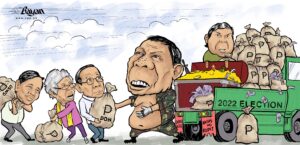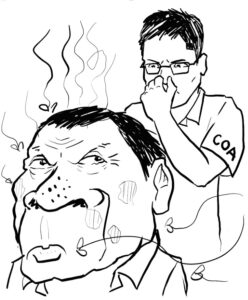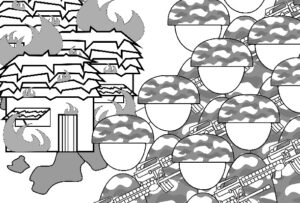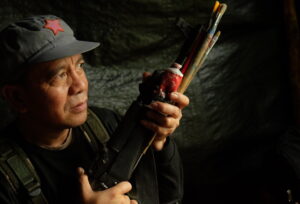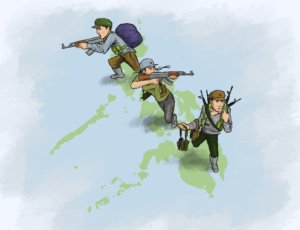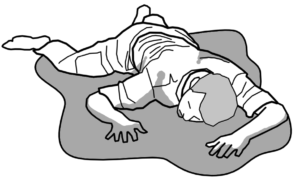Hunger and hardships under ECQ

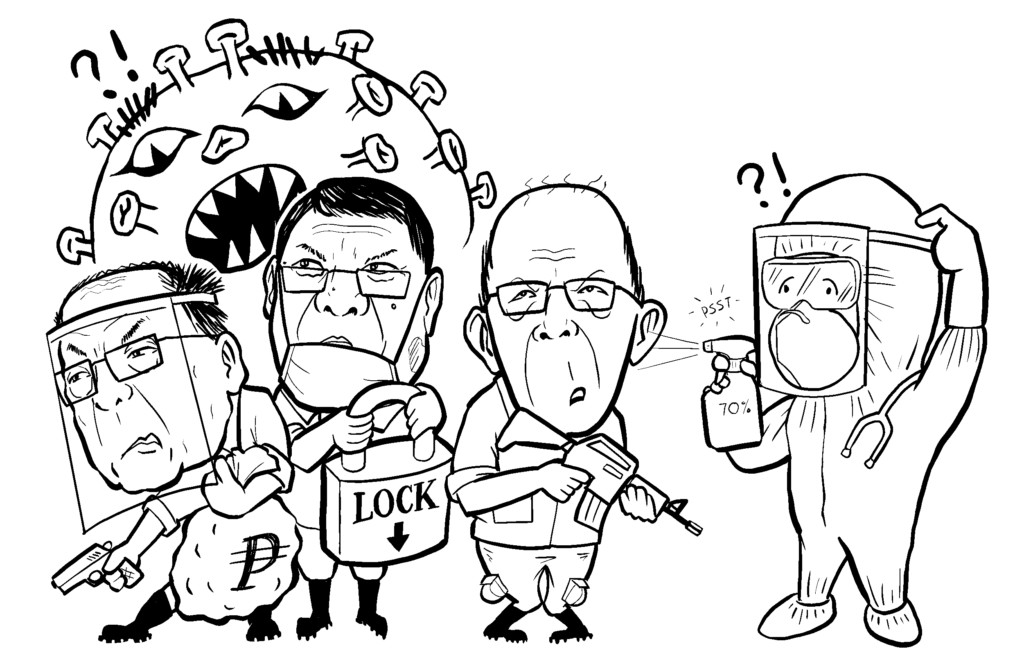
The quarantine level in the National Capital Region (NCR), Bataan and Laguna was lowered to modified enhanced community quarantine (MECQ) from August 21 to 31 after two weeks of being under enhanced community quarantine (ECQ), the strictest form of lockdown. The decision was made through secret ballot voting by members of the Inter-Agency Task Force without publicizing their basis.
The announcement was made after the Department of Health (DOH) reported more than 14,000 new Covid-19 infections on August 19. The following day, new infections rose further to 17,231, the highest since the pandemic. Before the two-week ECQ, daily cases were only at 9,000. According to the department, this translates into a positivity rate of 24% out of 60,000 individuals tested. This shows the country’s limited testing capacity as as a 5% positivity rate was set as a standard to gauge if a country was doing enough testing.
Over 1.8 million individuals have been infected with Covid-19 in the country as of August 20. More than 10,000 have been infected daily in the past nine days, and it is expected to rise further in succeeding weeks.
In Metro Manila, 73% of hospital beds for critical patients are already occupied, as well as 60% of isolation beds and 67% of ward beds. The utilization rate of ventilation machines is also already at 61%. Instead of immediately constructing more facilities to accommodate more patients, the IATF ordered hospitals to utilize hospital beds intended for non-Covid-19 patients to accommodate Covid-19 patients. This was carried out while refusing to hire more hospitals, forcing overworked doctors and nurses to take on more work.
However, it appears that the real reason why the quarantine status was lowered instead of extending the ECQ is the lack of funds for aid which Department of Interior and Local Government Sec. Gen. Eduardo Año himself admitted.
Earlier, many capitalists opposed plans to extend the lockdown. They said that many businesses have already closed down, and that more will close down should the ECQ be extended. Data by the National Economic Development Authority indicate that approximately ₱150 billion in revenues was lost weekly because of the lockdown. Given that the NCR comprises a third of the economy, this severely impacts the local economy.
Due to successive lockdowns since 2020, approximately 9.2 million to 13.5 million Filipinos have lost their jobs or became underemployed amid the pandemic. On top of this, approximately 444,000 have also lost their jobs during the two-week ECQ.
Instead of being strengthened, the public health system and the condition of health workers continues to deteriorate. According to the Philippine Nurses Association, approximately 40% of all local nurses resigned from their jobs since last year because of being overworked, underpaid, and not given appropriate benefits such as the special risk allowance and active hazard pay. Of the approximately 30,000 nurses working in private hospitals, approximately 13,000 are contractuals. Nurses threatened to resign en masse due to being overworked and denied of their benefits.
Lawmakers also criticized the token ₱4.5-billion aid which Año bragged about. Data by online data aggregator iPrice indicate that Manila City has the second highest cost for rent among six cities in Southeast Asia covered by its research, next to Singapore. Citing the study, Bayan Muna Rep. Carlos Zarate cited said that the average monthly cost of living in NCR is ₱50,800, or ₱28,800 excluding rent. Each individual needs approximately ₱7,000 weekly to survive. The ₱1,000 subsidy to individuals is even less than the two-day salary received by a minimum wage earner in NCR, and only barely higher than the daily living wage of ₱1,058 for a family of five. Even an aid of ₱4,000 per family is not enough to make ends meet. Data by iPrice indicate that a family of four needs at least ₱57,600 every two weeks to live decently, greater than ₱4,000.
Amid this, the regime pushed for the implementation of restrictions on people’s movement and drove them to the wall in the name of the pandemic. In NCR alone, the police arrested 108,777 individuals for allegedly violating health protocols primarily because of economic reasons. In the evening of August 7, a barangay tanod gunned down scavenger Eduardo Geñoga Sabado in Barangay 156 in Tondo, Manila after being apprehended for violating curfew restrictions. Geñoga suffered from a mental illness.

